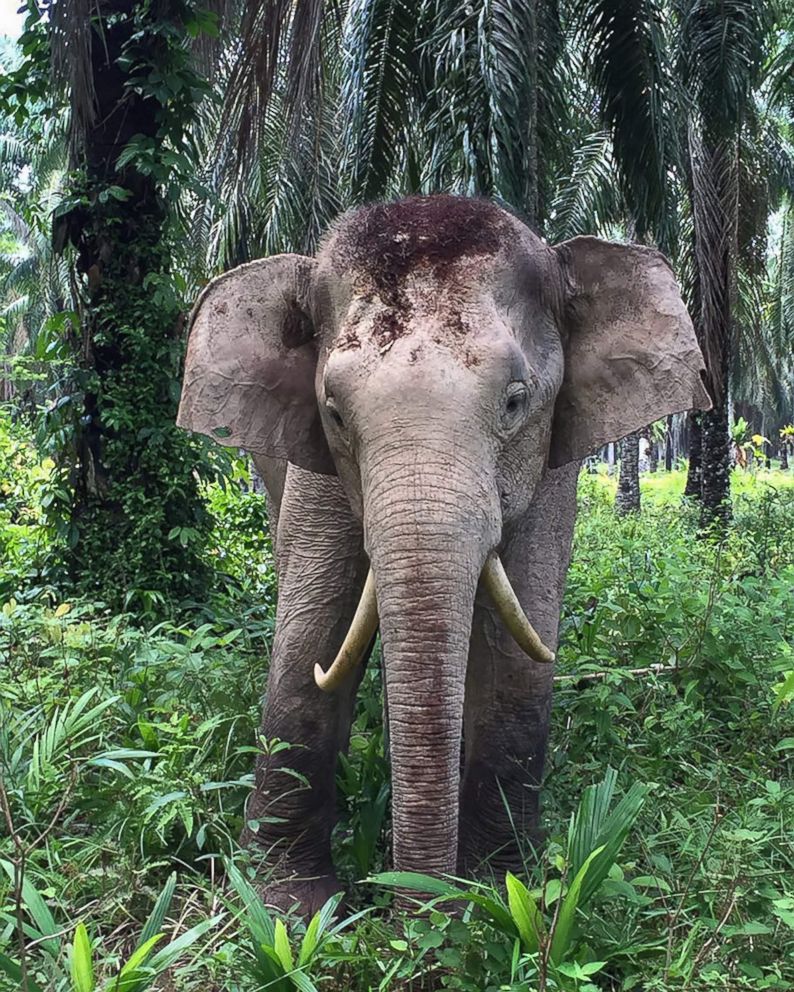Rare Pygmy Elephant With 'Saber-Tooth' Tusks Spotted in Malaysia
The elephant has tusks that grow backward, a wildlife official said.
— -- A team of wildlife experts spotted a rare pygmy elephant with "saber-tooth"-like tusks in the Malaysian state of Sabah on Borneo island, according to the Sabah Wildlife Department.
The baby-faced elephant with large ears, a long tail and tusks growing backward was discovered at a palm oil plantation on Thursday, international news agency Agence France-Presse (AFP) reported.
"It is very rare," Sabah Wildlife Department Assistant Director Sen Nathan told AFP. "We're not exactly sure why the tusks are like that, but it could be a congenital defect or maybe because of inbreeding."
A similar elephant, also found in Sabah, was caught on camera last year, Nathan added.

"The tusks resemble the prehistoric saber-tooth tiger, but, of course, they are not related," said Andrew Sebastian, co-founder of the Ecotourism and Conservation Society Malaysia.
Sebastion told the AFP that the elephant's reversed tusks were certainly "interesting," but they could cause problems when it comes to jostling with other elephants.
The pygmy elephants of Borneo are the smallest elephants in Asia, according to the World Wildlife Fund (WWF), which currently lists them as endangered.
"The primary threat to these elephants is the loss of continuous forests," the WWF states on its website. "Mammals of their size require large areas to find sufficient food. The large blocks of forests they require are fragmented by encroachment and conversion of natural forests to commercial plantations."




